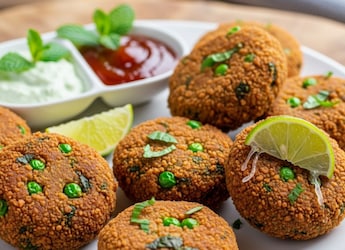Hypertension is a condition in which the force of the blood against the artery walls is too high. Characterised by high blood pressure, an individual is deemed to be a hypertension patient when his blood pressure is above 140/90. In severe cases, the pressure can even shoot to 180/120, which needs immediate medical attention. It is often the principal cause of heart-attacks, strokes and kidney failure.High blood pressure has no symptoms, which is why it is often left undiagnosed or diagnosed in the later stages when it is difficult to reverse the condition. However, it can be manged and kept under control by following a strict diet (eating healthy and less salty or spicy food), exercising regularly and taking medication. A couple of Ayurvedic home remedies can also prove to be very effective in bringing down high blood pressure.
Advertisement
Advertisement
Advertisement
Advertisement
For the latest food news, health tips and recipes, like us on Facebook or follow us on Twitter and YouTube.
Advertisement
